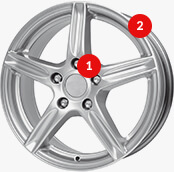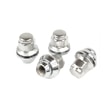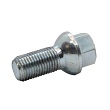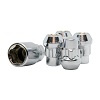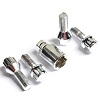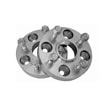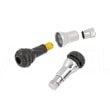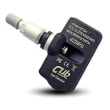TPMS pressure sensor for Ford Transit Combi 2013-2018 DR3V1A180BB
 16 YEARS OF EXPERIENCE
16 YEARS OF EXPERIENCE
The Super Seller on Allegro.pl
 SECURITY
SECURITY
The regulations meet the Trusted Shop quality criteria
 QUALITY CERTIFICATE
QUALITY CERTIFICATE
Alloy wheels have ISO, VIA JWL certificates proving their high quality
 GUARANTEED QUALITY
GUARANTEED QUALITY
Aluminum Rims are covered by a 3-year warranty
 STATIONARY SHOPS
STATIONARY SHOPS
Opportunity to look at the goods closely, direct contact with an expert
In a set


Sensors programmed for Ford Transit Combi
Sensor compatible with: Ford Transit Combi
manufactured in 01/2013-12/2018
OEM number: DR3V1A180BB
Frequency: 433 MHz (Europe)
Recommended programming method:
Copying ID numbers (Cloning)
Programming: Autel devices
Battery life: up to 5 years
NOTE: When purchasing, be sure to provide your CAR details
When placing an order for TPMS sensors, please provide the following information in the comments section vehicle: make, model, year and month of production, as well as target market (for the US market, frequency should also be provided, as not all vehicles intended for the American market operate on frequency 315 MHz). Lack of this data will result in sending unprogrammed sensors. Then it will be necessary to program the sensors yourself using the AUTEL brand diagnostic device.
Please note that for some vehicle models manufactured in the same period, this is possible existence of two different TPMS programming protocols. Without the physical presence of the vehicle we are unable to determine proper protocol. In such situations, the serial/OE number of the part or cloning is necessary sensors.
The sensor programming service is provided free of charge and does not constitute the basis for any claims complaints. If the wrong protocol is loaded, it will be necessary to reprogram the TPMS to own responsibility when using AUTEL.
devicesWe offerhigh qualityTPMS sensors that match factory solutions. The sensors are universal, so they are compatible with almost every car - according to the manufacturer, up to 95% of car models . Moreover, thanks to the possible adjustment of the adhesion angle (0 - 30 degrees in the case of a sensor with a twist valve), the sensor fits most rims available on the market.
The sensors are programmed using AUTEL devices . There are two methods of programming TPMS sensors - assigning new ID numbers and copying the original ID numbers.
Sensor programming method for Ford Transit Combi - copying original ID numbers (cloning).
The recommended programming method for Ford Transit Combi produced in 01/2013-12/2018 is cloning. In this case, we will upload the identification numbers (ID) of your current sensors that are currently installed in your car to the TPMS sensors. The new sensors will not require activation because the car will not know the difference between the new and old sensors. The perfect solution for replacing wheels without having to perform any additional steps.
How to read the TPMS sensor ID?
Each TPMS sensor has its own unique ID number . To program your sensors, we will need the unique ID numbers of the old sensors. If you purchase 1 pc of sensor, please send us the ID of the specific sensor, and in the case of 4 sensors, please send us 4 pcs of ID. Please provide us with the numbers in the store notes in the basket or send them by e-mail.
There are three ways to obtain cloning sensor ID numbers:
- Wirelessly from the TPMS sensor diagnosis device. Bring the device close to the wheel and read the data. There is a high probability that you do not have such a device at home, so go to a service/vulcanization/mechanic for this purpose.
- Wired from the car's on-board computer. You need to connect to the car with a service computer and read the ID numbers of the sensors. You will have to go to a car workshop or an authorized service center.
- Directly from the TPMS sensor if you have the original sensors. Due to the possibility of multiple programming, replacements do not have ID numbers printed on them.
Note: If you do not send us ID numbers after purchase, we will create replacements by default. In this case, new ID numbers will be uploaded to the sensors and activation of the new sensors will be required. If the vehicle does not have automatic learning options, they will have to be manually uploaded to the ECU on-board computer (you will need to visit the workshop/ASO).

Certificates confirming RED and FCC specifications
The sensors are certified to meet the requirements of the European RED (Radio Equipment Directive) directive and regulations the American FCC (Federal Communications Commission). In both cases, the sensors have undergone rigorous testing regarding safety and health, electromagnetic compatibility and efficient use of the radio spectrum.
Technical data.
- Battery life is 5 years or 150,000. km.
- Reprogrammable up to 100,000 times.
- The operating frequency is 433MHz (Europe) or 315MHz (USA).
- Possibility of replacing the valve only, without having to replace the entire sensor (e.g. after damage to the valve itself).
- Sensor valves are protected by anodizing.
- Meets FCC, CE, RoHs standards.
TPMS – tire pressure monitoring system.
The tire pressure monitoring system, also known as TPMS (Tire Pressure Monitoring System), is an advanced technology that ensures driving safety and efficiency by constantly monitoring the air pressure in the tires . Thanks to four TPMS sensors mounted on the rims, the system wirelessly transmits key information to the on-board computer, enabling drivers to constantly monitor the tire pressure status. So if you want to have insight into the pressure in each wheel, you must have 4 such sensors.
The origins of TPMS systems date back to the early 1980s, when the first vehicles were equipped with pressure monitoring systems to increase safety. The first production car equipped with a tire pressure monitoring system was the Porsche 959 in 1986. Since then , this technology has undergone significant evolution , from simple solutions to advanced technologies using wireless sensors.
The introduction of mandatory TPMS systems results from global legal regulations that aim to increase road safety. In the USA and Europe, in accordance with EU regulations, all new vehicles must be equipped with TPMS systems from 2014.
Advantages of maintaining the correct tire pressure.
✅ Ensuring compliance with combustion standards specified by the manufacturer. ✅ Less tire wear, which translates into savings. ✅ Improving vehicle control, especially on corners, and shortening braking distances. ✅ Increased security.
Read on the LadneFelgi.pl blog
Tech specs:

The model:determines the appearance of the rim. By entering the model in the LadneFelgi.pl store search engine, you can search for rims in different colors and with other parameters.

Color: determines the colors in which the offered item was made. Pictures are taken under natural lighting.




